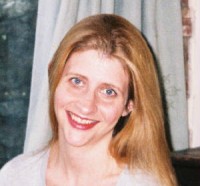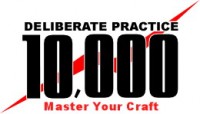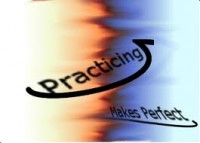Running up that hill
 A while back on my blog in a post called ‘Steepness’ I wrote about a workout I sometimes do. It involves running up a hill with a flight of steps cut in it. It’s a killer workout. After a few repetitions you either vomit, or almost-vomit (if you start with a completely empty stomach). It’s a workout that pays huge dividends in terms of physical conditioning. And it’s a workout that I will make many excuses to avoid. (At the moment I’m claiming hayfever).
A while back on my blog in a post called ‘Steepness’ I wrote about a workout I sometimes do. It involves running up a hill with a flight of steps cut in it. It’s a killer workout. After a few repetitions you either vomit, or almost-vomit (if you start with a completely empty stomach). It’s a workout that pays huge dividends in terms of physical conditioning. And it’s a workout that I will make many excuses to avoid. (At the moment I’m claiming hayfever).
What I found, briefly, was that if I isolated the hardest part of this hard workout and worked it repetitively, as intervals, I got better rapidly. And the intensity of mental focus that arose out of that isolation work was staggering. It was really remarkable. I’ve wanted to unpack this in relation to writing for ages, but I couldn’t quite put my finger on what I wanted to say. Then my partner (who trains fighters in his work) started telling me about research in a field called ‘deliberate practice.’
Deliberate practice is a method of improving performance through stretching yourself, making mistakes, and critical self-evaluation while remaining ignited toward your goal. It’s an area of research developed by K. Anders Ericsson centring on sports performers, classical musicians, chess players, and some other professionals. If you want to read more about it, here’s an article. Malcolm Gladwell also wrote about these ideas in Outliers This is a huge area, but in brief here’s what I’m getting: the essence of deliberate practice is forcing yourself to deal with steepness. It’s a way of increasing the gradient of your learning curve whether you are a beginner or an old-timer. And I would add from my own experience of running the hill that this approach creates a degree of intensity that burns through mental barriers.
increasing the gradient of your learning curve whether you are a beginner or an old-timer. And I would add from my own experience of running the hill that this approach creates a degree of intensity that burns through mental barriers.
It’s like putting yourself in the anaerobic threshold zone and staying there even when you think you’re going to die. But how to apply these sports metaphors to writing? When I first read this stuff about classical musicans practicing like demons I was repelled. I was all like, ‘Oh, but I’m a creative, dude. I’m not gonna do drills. That messes up my flow, like. Yuck.’ I think I said to my partner: ‘But this represents the whole ethos that I ran away from screaming, years ago.’
Then I thought about it a bit more. Deliberate practice is a set of ideas cultivated around performance, and specifically around performance in areas where success or failure can be clearly defined. So we can run into trouble when we try to apply these methods to creative work. Partly this is because of the definitional marsh surrounding the notion of creative ‘success.’ Success for a classical musician performing a score relies on that musican reaching an agreed standard of what is ‘good’ or’ excellent.’
A basketball player drilling shots knows exactly what he or shy is trying to achieve. Even in the chaotic environment of a game where the player has to deal with teammates, opponents and the unpredictable unfolding of events, at least there is clear feedback that tells her ‘where did I go right?’ and ‘where did I go wrong?’ There are objective criteria to be met.
 If you’re a writer you’ve probably already spotted the problem I’m talking about. One reader loves how you did X in a story. Another reader thinks it’s tacky. And so on. Or maybe you look at a bestselling or highly praised book and go, ‘Huh? What’s all the fuss?’ while noticing that critics describe a book you love in pejorative terms. Trying to judge your work (or anybody’s) against an objective standard is impossible. There is no such thing.
If you’re a writer you’ve probably already spotted the problem I’m talking about. One reader loves how you did X in a story. Another reader thinks it’s tacky. And so on. Or maybe you look at a bestselling or highly praised book and go, ‘Huh? What’s all the fuss?’ while noticing that critics describe a book you love in pejorative terms. Trying to judge your work (or anybody’s) against an objective standard is impossible. There is no such thing.
The whole enterprise is a recipe for crazy sauce. And yet, we must go on, crazy sauce or no. Personally, my sense is that although trusted readers can encourage you and a good editor is priceless, ultimately you spend most of your time in your own head. You stand or fall on your own judgement.
So the decisions about what to work on in your writing have to be yours. To start with, how can we identify strengths and weaknesses? I have found that the obvious, most foolproof way is to look for the steepness. Look for what is hard. Steer into the wind. For example, maybe dialogue is hard and you avoid it. OK. If you can identify that, then you can do something about it. You aren’t doomed to write wooden dialogue for the rest of your life.
write wooden dialogue for the rest of your life.
Go read books that have excellent dialogue. Read plays. Watch movies–good movies with good writing, not just movies where stuff blows up. And practice dialogue in isolation. You could try writing a whole story in dialogue, or at least a whole scene. And this is important: work with the expectation that it will be bad. Don’t let suckage stop you. When you have some product, examine it carefully and conscientiously to identify your failures, correct what you can, and go again. Writing ain’t magic (except when it is, but that’s out of your control so you may as well forget about it).
It’s a learning process like any other. If you look closely, you can find a way to apply deliberate practice to your writing at pretty much every level, from word choice through all the levels of style and structure, right on up to subject matter and work habits. The trick is to isolate problem areas, devise ways of addressing them, then evaluate the result and adjust accordingly. All of these stages are important. You can’t just put in blind mileage; you have to invest in the meta, in the critical examination of your own process. And this never stops. There is no arrival. That’s what makes it a practice. And it’s not supposed to be easy. The whole point is to push past your own resistance. So many times I have thought, ‘I can’t do that. I’m not that sort of writer. I can only do this.’ But the lesson of deliberate practice is that you can be any kind of writer you want to be if you’re prepared to take on the steepness.  My personal bugbear of the moment is endings.
My personal bugbear of the moment is endings.
I’m famous for starting things, going a certain way, and then starting something else. My hard drive is full of undeveloped and half-developed projects. I work and work and have no product. So at this moment, I’m forcing myself to finish what I have started. I hate it! It’s not fun. But I’m learning from this. It’s like psychological kettlebells. No pain, no gain. And look: we’re all human here with all kinds of demands on our time and energy. We may need to pick our battles carefully, choose wisely where we invest energy. So it’s important to be smart and practice with eyes open as to what specific work will do the most good. Personally I believe that desire is probably the most important thing, because it’s desire that keeps driving you even when the work is too hard and the road seems too long.
So I will leave you with the quote that hangs above the computer in our kitchen: ‘Champions are made from something they have deep inside them, a desire, a dream, a vision. They have to have last-minute stamina, they have to be a little faster, they have to have the skill and the will. But the will must be stronger than the skill.’ –Muhammad Ali
Bio:
Tricia Sullivan is a science fiction writer. She also writes fantasy under the pseudonym Valery Leith. She moved to the United Kingdom in 1995. In 1999 she won the Arthur C. Clarke Award for her novel Dreaming in Smoke. Her novel Maul was also shortlisted for the same award in 2004. Sullivan has studied music and martial arts. Her partner is the martial artist Steve Morris, with whom she has three children. They live in Shropshire.


































